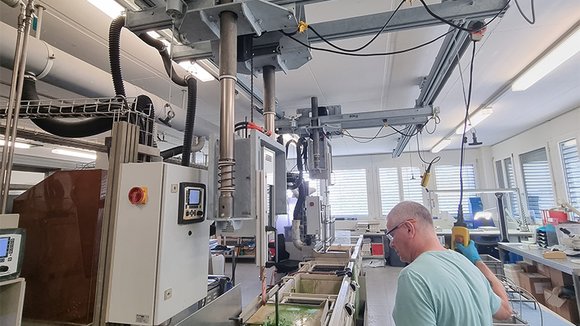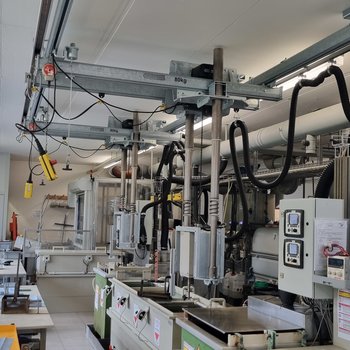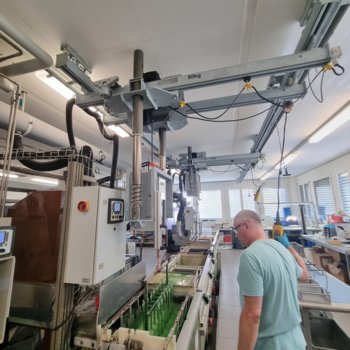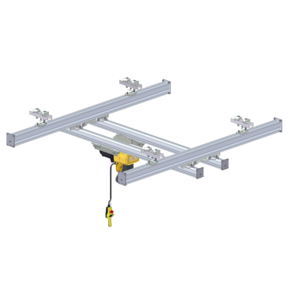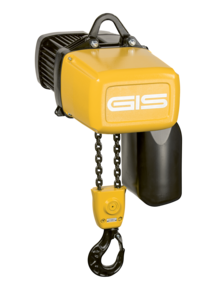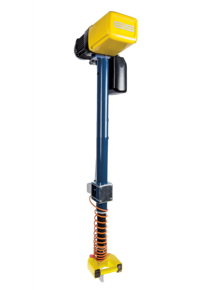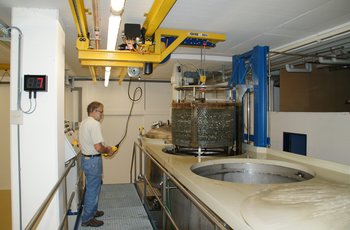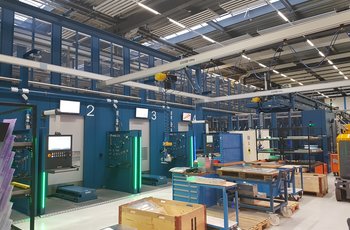BWB-Ampho SA specialises in the assembly of small parts by means of welding and soldering processes, electrolytic surface treatments, sand and glass bead blasting, and the processing of stainless steel cables. When it comes to surface finishing, the company is an important partner for the watch and jewellery industry. But the La Chaux-de-Fonds-based specialist's know-how is also used in medical technology and architecture.
Immersion baths for electrolytic processes
In BWB-Ampho's production there is an area with several immersion baths for the most diverse electrolytic processes from pickling to electropolishing. An electrolytic process requires a power source with 2 electrodes (cathode and anode) and a vessel with a conductive liquid, the electrolyte, in it. The direct current is conducted via the electrodes into the electrolytes and sets a chemical process in motion. This is now used for the surface treatment of workpieces that are immersed in the liquid. Until now, the employees carried out the dipping process of the parts to be treated manually. This process was particularly stressful for the shoulders and back. With the aim of making the work easier for the employees, they started looking for a lever solution for these work steps. This led to cooperation with GIS, the specialist in lifting technology.
A crane system with special requirements for corrosion protection and safety
A crane system was needed to transport the workpieces from the work table to the dipping basins. The automatic control unit had to be integrated into the system. This is the heart of the system, as it controls the power supply to the baths and contains the equipment for the automated lifting and swivelling movements during the dipping process. Since the resulting vapours cause untreated steel to corrode within a very short time, the indoor crane had to meet the high demands of this environment. Due to the local conditions, high precision was required for the travel and lifting movements and no component of the crane was allowed to be longer than 3 m to enable problem-free assembly.
The realised solution consists of a GISKB light crane system with 2 double crane girders. Each crane girder is equipped with a GPM250 electric chain hoist for 80 kg S.W.L. and 2 extendable triple telescopic tubes enable a lifting height of 945 mm, with an overall construction height of 997 mm. In addition, they ensure that the load is guided with millimetre precision and prevent the load chain, including the automatic switch and workpiece, from turning sideways. The automatic switch for supplying power to the baths is mounted between the extendable tubes. The power supply is fed into the automat in a flame-resistant polyurethane (PU) hose along the crane runway, cross beam and telescopic tube. The crane bridge can be locked in the exact position above the immersion baths so that no unintentional longitudinal or transverse displacement can take place during the work process, thus preventing a short circuit or potential spark jump. For corrosion protection, the entire GISKB system is galvanised and the telescopic tubes are chemically nickel-plated.
The system provides the desired improvement and relief
BWB-Ampho is extremely satisfied with the new crane system. It ensures that the parts to be treated can be dipped and swivelled in a controlled manner, which is crucial for the final result. In addition to an increase in production and an improvement in quality, as a positive side effect, a massive reduction in the workload of the employees was achieved.
